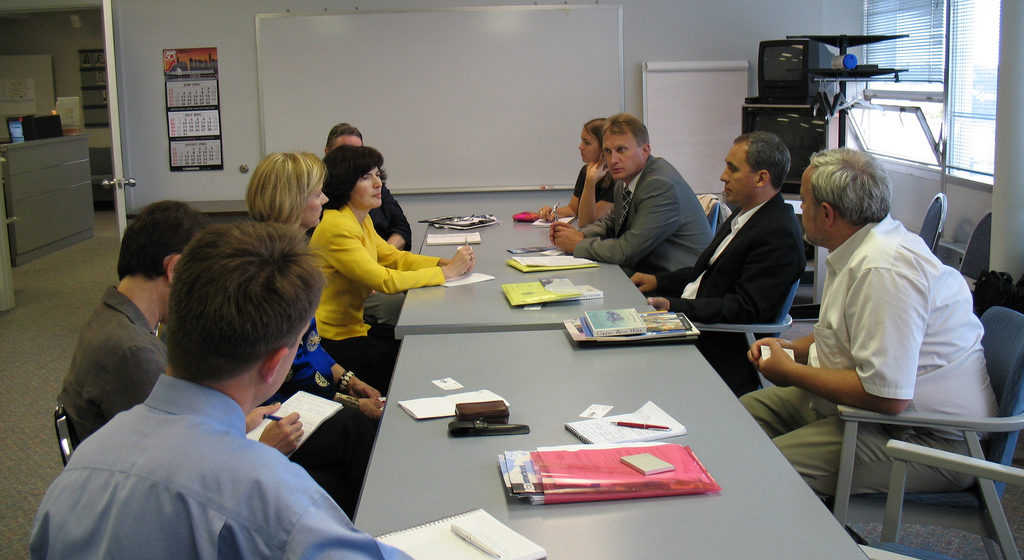It is the desire of every employer to have employees, who are fully engaged, productively active, organizationally socialized and who are ready to hit the ground running. An effective onboarding process makes it easier for a new hire to integrate into an organizations culture, learn the ropes, be aware of the norms that are prevalent including the power structure and politics in the organization.
Researchers have shown that organizations differ one from another, essentially because, an organization is manned, managed and run by human beings. Human beings are known to have their different personalities, ideological leanings, orientations, and perspectives. Even for well-experienced professionals that changed jobs, it has been well researched that if not properly re-orientated, indoctrinated, acculturated either by self or by deliberate action of the organization they tend to be like fishes out of water in a new environment. For more insight read HUMAN RESOURCE AS A COMPETITIVE ADVANTAGE
Onboarding is both in the best interest of the organization as well as that of the new hire, properly done, formally or informally, it is a win-win for all. To the new hire, he or she feels welcomed, sees the organization as a platform to showcase his or her knowledge, skills, and ability (KSA), where he could rely on and work with others to achieve organizations objectives. At the same time, a fully and effectively integrated staff is seen as a proof that the employment tools and placement system are appropriate.

WHAT IS ONBOARDING?
Different terms such as organization socialization, induction, introduction to the organization are used to describe onboarding. Simply defines, onboarding is both the structured and unstructured means by which a new employee is received, welcome and provided with the necessary information about the organization, his job functions and the ways of life within an organization so as to enable the newcomer settle into his or her new job position more easily and become fully integrated.
WHAT ARE THE BENEFITS OF A WELL STRUCTURED ONBOARDING SYSTEM?

www.askkayodemicah.com.ng
It has been observed that newly employed personnel often play with a lot of thoughts in their minds before assuming a new job role such questions will range from:
• Will I be well received by the older staff of the company?
• How and what will the company be like?
• What kind of a person is my direct supervisor or boss?
• Will I be able to do the job as expected?
• How quickly will I be able to fully integrate myself into the mainstream of the companys activities?
• How well will I be accommodated and given enough time to deliver on the new task given to me?
KEY BENEFITS
• Essentially the key benefit of onboarding processes is to smooth the ground for the new employee and ensure that a positive impression is created by the organization in such a way that eases tension in the newcomer.
• Additionally, it has been noted too, that a proper onboarding system helps lessen early exit or the likelihood of the employee leaving the company. It has been documented that a new employee would form an impression about the organization in the first four weeks of joining and this impression if not properly managed would affect the perception of the employee for a long time to come. This point is supported by a research by the office of State Personnel that posited thus Employees will decide within 10 days if they intend to stay with the organization or begin looking for a different job
• A good onboarding system helps the organization save associated costs that are related to staff turnover, wastage and protracted replacement of staff in the organization.
• Strategic onboarding system encourages engagement and full commitment to the organization.
• Lastly, an effective onboarding process helps the employee to feel at ease and display a favorable attitude towards the organization.
WHAT ARE THE PROCESSES IN ONBOARDING FOR NEW HIRES?
It has been erroneously construed that onboarding processes begin at the point that a new employee assumed duty or first reported for work, please read REASONS WHY PEOPLE CHANGE JOBS. It must be noted here that in most cases before an applicant submits an application letter seeking for employment in an organization he or she has already formed an impression about that organization, in this case, it is a one-sided opinion. The way he or she was communicated to thereafter, invited for an interview or a written test, how he was handled throughout the recruitment processes will to large extent create an impression in the employee when he or she is finally given an offer.
My position as an employer of labor a recruitment consultant and a recruiter is for organizations and their representatives to live out their corporate values at all times because this will determine to a reasonable extent the companys public image and perception.
Continue to:
STRATEGIC ONBOARDING PROCESSES: EMPLOYEES INDUCTION AND INTEGRATION
________________________________________________________________________
Sharing is caring!





 Copyright © Kayode Ibukunoluwa-Micah
Copyright © Kayode Ibukunoluwa-Micah